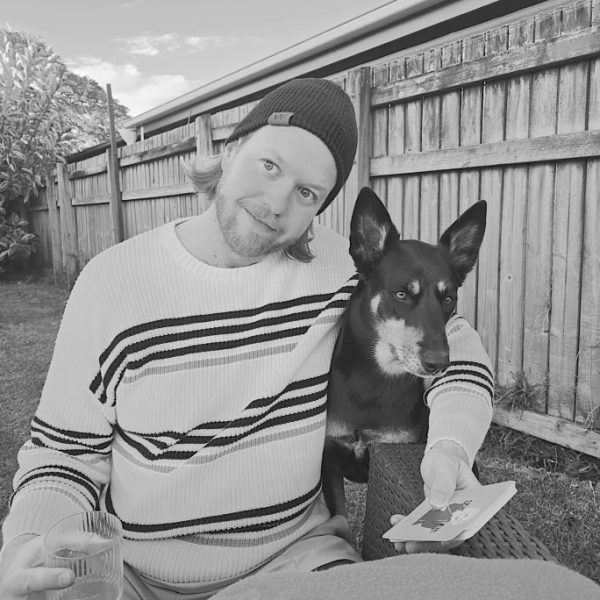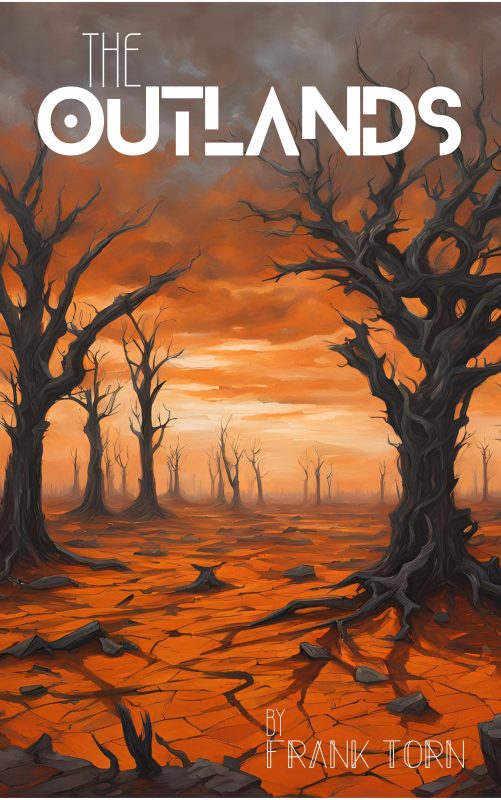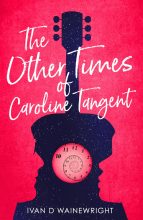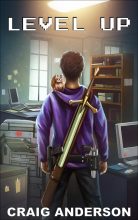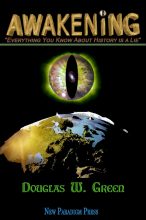CH 1: THE PRECIPICE
*** THE OUTLAND ***
The barn was dimly lit. The scent of hay thick in the air, mingling with the faint musk of animals long gone. The night outside was cold, silent, as if the world beyond had ceased to exist, leaving only this hidden refuge where two souls dared to defy their fate. Warm breaths mingled; the two young men knelt close, their faces barely visible in the darkness. The barn was their sanctuary, a small space of solitude amid the endless sea of responsibilities and expectations that kept their hearts shackled. It was here that they met, against propriety and unspoken rules. Here, in the quiet of the barn, they allowed themselves to feel something they could not name.
The kiss was gentle a promise of something neither knew how to define, but something that was undeniably real in that instant. A hand reached out, fingers brushing against the other’s jaw—hesitant, trembling with an uncertain yearning. The hesitation was brief, overcome by the desire to feel warmth, to hold onto something that could carry them away from the weight of their everyday lives. It was in that brief touch, in that fleeting moment of connection, that they both found the courage to close the gap, lips meeting in a rush of warmth—a touch that felt like defiance against everything outside that barn. It was as if, in that kiss, they were rejecting the world. Here, they could just be.
As the father finished his evening chores, gathering tools from the field, he noticed the faint glow of a lantern coming from the barn—a flicker of light that had no reason to be burning at this hour. He crossed the yard, intending only to extinguish it, unaware of the scene awaiting him behind the barn door.
The door swung open, and the father paused for only an instant, his eyes narrowing, his posture stiffening with the realisation of what he was witnessing. His anger was silent, heavy—more terrifying in its restraint than in its expression. He moved quickly, too quickly for them to react.
Edgar grabbed his son by the arm, wrenching him away from the other boy, who stumbled backward, his face pale, his breath snagged somewhere between a gasp and a cry. Edgar’s fury ignited like a backdraft: one enormous hand closed around Emiel’s collar, and, with a wrenching twist of shoulder and hips, he flung the boy sideways. Emiel rocketed toward the narrow inspection window—the one built only to steal daylight for saddle fittings—and struck it with the full, helpless breadth of his body.
Time buckled. The pane bulged, then burst in a crystalline explosion. Glass did not merely shatter; it erupted, a blinding halo of fragments propelled outward on a shockwave of panic. Shards scythed across Emiel’s forearms as they instinctively flew up to shield his face. Thin, glittering knives raked from wrist to elbow, carving through flesh and fabric alike, embedding bright splinters that winked crimson as soon as his heartbeat caught up. Tiny prisms whipped through the air, whistling past rafters and trussing like lethal confetti. The cedar frame groaned, warped, then split with a crack that sounded almost human—half-scream, half-splinter.
Emiel slammed onto the floorboards amid a glittering rain of shards. The planks answered with a hollow boom that rolled through the barn like distant thunder. Wind surged through the new wound in the wall, scattering hay, hurling motes of dust into spinning columns that caught the lantern-light and looked, for an instant, like ghostly figures rising to witness the violence. Blood welled along Emiel’s forearm where serrated glass had kissed flesh, a vivid counterpoint to the cold draft knifing in from the night beyond. Above him, Edgar loomed—chest heaving, silhouette jagged against the splintered hole he’d torn through the wall—proof that rage, once loosed, can drive daylight straight through timber and bone alike.
“Get away from him!” Edgar roared.
Edgar’s voice was a growl as rough as gravel, vibrating with a fury that had not yet found its full expression. Before the other boy could protest, before he could do anything at all, he was running. He ran but not far. His feet took him just beyond the barn, to a thicket where he crouched low, his heart pounding so violently that he feared it would betray his hiding place. His throat was dry as he strained to hear, to catch some indication of what was happening inside. The muffled sounds of struggling reached him—and then the dull heavy thud of blows.
Emiel lay on the ground, Edgar towering above him. There was no sound now but that of flesh meeting flesh, the weighty impact of each blow, the father’s rage made manifest. It seemed endless, the fury and violence. The son curled in on himself, trying in vain to shield his head, his arms already bruised and limp.
From somewhere beyond the barn walls, a dingo howled—distant, but sharp enough to splinter the night. Neither father nor son noticed, but the sound threaded itself into the rafters, a warning that violence was no longer just a human inheritance.
The young man hidden in the thicket held his breath, waiting, praying for it to end. He wanted to rush in, to pull the father, to plead—but he knew better. He knew that any movement would bring the father’s wrath on himself. He waited, his fingers digging into the earth beneath him, his body trembling.
It felt like an eternity before Ethel’s voice cut through the darkness, trembling and breaking as she called them in for dinner, her voice cracking under the strain of what she must have already understood.
The father finally paused, his eyes vacant, lost in his anger, and turned, stepping away from the broken figure on the ground. His chest heaved with the remnants of his fury, his breath coming in sharp, ragged bursts. The son lay there, unmoving, the dirt beneath him dark with blood, his eyes half-open, unseeing. The young man didn’t wait. Panic propelled him west, breath tearing at his lungs while the road dissolved beneath his pounding feet. Fear tangled with guilt, each step widening the gulf between what he had just seen. Only when his own house finally rose from the dark—warm and lamplit, mocking the night he had escaped—did he dare slow to a trembling halt.
The evening was falling softly over the fields, the sky painted in hues of lavender and gold, as Ethel stood at the threshold of the house, her apron still clutched in her hands. The scent of beef stew with potatoes and fresh bread wafted from the kitchen, the warmth of the fire spilling from the doorway. She called out, her voice reaching across the yard: “Edgar! Emiel! Dinner is ready!”
The wind carried only silence back to her, the barn standing dark and mute in the distance. A frown creased her brow. The sun was dipping low, shadows stretching long across the fields, and still no answer. Ethel stepped down from the porch, her bare feet brushing against the cool earth, and she walked toward the barn, her heart heavy with a vague unease that she could not name.
She called again, her voice louder this time: “Edgar! Emiel!” But still, only the rustling of the wind through the tall grasses responded.
The barn door stood ajar, and as she approached, she noticed a strange stillness, the kind that made the hairs on her neck stand on end. Ethel paused at the entrance, her eyes adjusting to the gloom inside, and there she saw him—Edgar, her husband, standing rigid, his face pale and his eyes vacant, staring at something she could not see. His fists hung at his sides, bloodied, though she saw no wound on him. “Edgar?” she whispered, her voice trembling as she stepped closer. The stench of sweat and something metallic filled her nostrils. “Edgar, what is it?”
He did not turn, did not blink, as if he were lost in some dark place beyond her reach. His eyes, once filled with the fire of determination, now looked hollow, extinguished. She moved past him, her breath caught in her throat, and then she saw.
Emiel lay crumpled in the straw, his body twisted, his face bruised and bloodied beyond recognition. His shirt was torn, his small chest barely rising and falling with shallow breaths. For a moment, the world seemed to fall away, a yawning chasm opening beneath her feet. She let out a scream – and a raw animal sound that tore from her chest, echoing in the hollow space of the barn.
She fell to her knees beside her boy, her hands shaking as she touched his face, felt the warmth still there beneath the bruises. He was alive—barely. The bruises were deep and purple; blood trickled from his lips. Tears streamed down her cheeks as she looked up, her eyes finding Edgar, still standing there, lost in that trance.
Rage surged through her, hot and blinding, and she rose, her body moving before her mind could catch up. She went to him, her fists clenched, and struck him across the face, the force of it sending him stumbling backward. He fell to the ground, his eyes wide, as if only now waking from a terrible dream. “What have you done, Edgar?” she cried, her voice breaking, her whole-body trembling with fury and fear.
“What have you done?”
Edgar stared at her, his mouth opening, but no words came out. There was nothing in his eyes but confusion, a hollow emptiness that terrified her more than the blood on his hands. He raised a trembling hand to his face where she had struck him, his lips parting as if to speak, but only a low, broken sound escaped him.
“Ethel… I…” he began, he looked down at his hands, the sight of the blood seeming to confuse him. “I don’t remember…”
Ethel turned away from him, her mind racing, a thousand thoughts rushing through her head, none of them making sense. She knelt beside Emiel once more, her hands brushing his hair back from his forehead. She had to get help—but The Outlands were so remote, the nearest, neighbour miles away. She looked out into the darkening fields, her heart pounding. They were alone, so terribly alone, and she knew that if she did not act now, she might lose him forever.
“Emiel, my sweet boy,” she whispered, her voice cracking, her tears falling freely. She pressed her ear to his chest, listening to the faint, fragile beat of his heart. “Hold on. Hold on!”
She screamed again, her voice ringing out across the empty fields, a desperate plea for help that seemed to vanish into the growing night. Then she grabbed Emiel by his arms, her tears falling onto his bruised face, and began to drag him, her own body trembling with the weight of her son and her fear. Her hands ached, fingers slipping on the damp ground, but she could not let go, not now. His frame was so limp, so fragile, and she could feel his faint, uneven breath.
She knew she could not waste another moment.
She dragged him out of the barn, her eyes scanning the horizon, praying that someone—anyone—would hear her cries, that somehow, they could be saved from this nightmare. The gravel of the yard scraped at her bare feet, the cold biting into her skin, but she pressed on, driven by a mother’s love and the desperate hope that she could still save her child.
“Help!” she screamed again, her voice cracking, her throat raw. The wind carried more than her voice—out in the black pasture, something moved low and deliberate, eyes catching the moonlight with a cold, lupine glint. “Please, someone, help us!”
She pulled Emiel towards the Chevy Suburban. Her heart pounded as she reached the car, her hands trembling as she yanked open the door. She heaved Emiel into the back seat, her breath ragged, her body screaming in pain. She climbed into the driver’s seat, her fingers shaking as she fumbled for the keys, the engine roaring to life as she slammed her foot on the gas.
The tyres spat dust as she tore away from the barn, squinting toward the spot where she knew the neighbour’s house must be—no more than a half-seen idea in the failing light. The fields stretched endlessly before her, the sky now a deep indigo, stars beginning to prick through the darkness. The world felt vast, the emptiness of the landscape swallowing her cries. But she would not stop. She could not stop. She thought of Emiel’s laughter, the way his eyes lit up when he saw her, the way he would run to her, his small arms wrapping around her waist. She thought of the life she had dreamed for him, a life far away from the hardship of The Outlands, a life full of promise and joy.
Behind her, in the barn, Edgar had pulled himself to his knees, his hands trembling as he looked at the blood staining his skin. His mind felt fractured, as if pieces of it were missing, lost to some darkness he could not comprehend. He heard Ethel’s screams, distant now, carried away by the wind, and a deep, gnawing fear began to take root in his chest. He looked around the barn, his eyes falling on the spot where Emiel had lain, the straw stained with blood, and a sob tore from his throat.
“What have I done?” he whispered, his voice breaking, his heart pounding with a terror unlike any he had ever known. He pushed himself to his feet, stumbling toward the barn door, his legs weak beneath him. He had to find them. He had to make this right.
Ethel’s breath came in ragged gasps – her eyes darting back to the rearview mirror – where Emiel lay motionless in the back seat. The Chevy rattled over the washboard track, its headlights carving twin ribbons through rippling grass. Ethel’s gaze kept flicking to the mirror, drawn to the barn that shrank behind them like a receding heartbeat.
Back there, the window Edgar had blasted Emiel through gaped wider than any door. It was no longer a mere pane of glass but a raw aperture, an unexpected mouth torn in the wall of an ordinary life. Tonight, the wind would rush through that wound, whistling secrets into the rafters; tomorrow sunbeams would spear inside and illuminate corners they had never bothered to sweep. Somehow, the farm would stitch itself around the gap the way flesh scars around shrapnel—neither whole nor truly broken, just permanently altered.
In the distance, a light flickered, a small, faint glow, barely visible against the darkened sky. Ethel’s heart leaped, hope surging within her. She turned toward it, her foot pressing harder on the gas, her voice rising once more in a desperate cry for help. The light grew brighter, a beacon in the night, and Ethel sped toward it, her heart pounding with a fragile, desperate hope. She would save her boy. She had to. No matter what it took, no matter how far she had to drive, she would not let him go.
Bellamy—youngest son of Dr Hale, the district veterinarian—had barely caught his breath when Ethel appeared in the doorway, her arms locked around her unconscious son. Dr Hale and his eldest son Morgan exchanged a look that spoke of experience and grim determination. Knowing what was needed, they carried the unconscious boy to their workroom, laying him on the table, the instruments of their trade gleaming dully under the dim lamplight. Everyone in the cramped treatment room froze for a heartbeat. Ethel’s eyes tracked immediately to Bellamy, and in that flicker of recognition the air tightened.
Dr Hale, reading the silent exchange, masked his concern behind professional bark. “Bellamy—gloves, now. Morgan”—he nodded to his eldest— “clear the table.” Father, elder brother, and younger son moved like a well-rehearsed unit, though tension coiled in every glance. The clinic had seemed crowded when the whole Hale family first opened the door to Ethel’s desperate knocking, but now only five people remained: Dr Hale, Morgan, Bellamy, Ethel, and the boy sprawled limply on the steel table.
Morgan—veterinarian, combat-medic, eldest brother—checked the boy’s pulse, already faint. He shot a questioning look at Bellamy, “What aren’t you telling us?” Bellamy’s jaw clenched; he could almost feel Ethel’s grief drilling into the back of his skull. She said nothing—shock or sheer fury kept her silent—but her rigid posture screamed accusation.
“Breathings stopped,” Morgan warned. Without waiting, he sealed his lips to the boy’s and began compressions, his movements steady despite the tremor creeping up his arms. Dr Hale hovered at the head, monitoring vitals, but his gaze kept cutting to the dried soil on Bellamy’s boots and the half-healed bruise blooming over the younger man’s cheekbone—signs of a struggle the father suddenly realised must have involved the very patient they were fighting to save.
Bellamy forced himself to assist, passing instruments, counting chest thrusts aloud, anything to drown the guilt roaring in his ears. Across the table, Ethel’s stare never wavered. Between compressions Morgan muttered, “Stay with us, mate,” then thrust again—hard, deliberate. Seconds dragged into years until, at last, the boy coughed, a thin rasp of air that crashed through the room like thunder.
Everyone sagged but no one spoke. Dr Hale rested a hand on the boy’s forehead, then fixed Bellamy with a pointed look, “Later.” Morgan stepped back, chest heaving, eyes shining with relief and unasked questions. Ethel broke first, a raw whisper— “Thank you”—directed to them all yet aimed nowhere near Bellamy.
The teenager lay on the narrow space in the workroom of the veterinary
clinic, his growing frame half covered by a threadbare blanket. His mother watched, her face drawn with exhaustion and grief, as the elder veterinarian examined him once again in the workroom. The man, roughened by years of treating cattle and horses, shook his head solemnly. She nodded mutely, her heart crumbling beneath the realisation that her son, was forever lost to her. Not in body, but in mind.
*** YEARS LATER ***
The path to Bellamy’s house was overgrown, the garden long forgotten. The wind’s breath wove through the branches, coaxing them to creak in a mournful lament. As she approached, her eyes set firmly on the dim window of the cottage, Ethel felt a cold, resolute emptiness. She was hollow, the pieces of herself that could break had long since broken, and she was left only with this: a determination so pure it frightened her.
He opened the door before she could knock. The young man—no longer a boy, though she could still see his ghost there in his face—stared at her, his expression torn between surprise and unease. His lips parted, forming her name: “Ethel.” There was a tremor in his voice, as if her presence alone had dislodged some old, buried memory.
Ethel stood there, her eyes as cold as the winter sky above them. For a moment, she let the silence fall between them, allowed him to feel the weight of it. She could see the discomfort in his face, the way his eyes darted nervously, the old shame stirring in his chest. It was a look she knew well—she had seen it so many times before in the faces of those who had turned away when they should have acted. She let that silence stretch, let it twist inside him, until she saw the tears begin to well in his eyes.
“You know why I’m here,” she said finally. Her voice was calm, almost gentle, and it made the man swallow hard, his Adam’s apple bobbing. He turned away, the guilt written in the lines of his body—in the slump of his shoulders, in the way his fingers twitched by his sides. The shame had always been there, a stain he could never wash away, and now, faced with the mother of the boy he had failed, it rose up within him like a tidal wave.
“I was a child,” he murmured, his eyes fixed on the floor. “I didn’t… I didn’t know what to do.” His voice broke, and he could feel the weight of those words, the hollowness of them. He had repeated them to himself so many times, had tried to convince himself that they were true, but now, they felt like a coward’s excuse.
Ethel stepped forward, her footsteps muted by the thick rug. She reached out, her hand brushing against his cheek, her fingers trembling slightly. He flinched at her touch, but did not pull away. His eyes were glassy, haunted by a past neither of them could escape. He could feel the years between them, the terrible silence that had grown like a chasm, and yet, in that moment, her touch felt like the only thing anchoring him to the world.
“You could have saved him,” she whispered. “My boy. My sweet boy. You let it happen.” Her voice broke, and for a moment, the mask of cold determination slipped, revealing the raw wound beneath. She had lost everything, and he had stood by.
He shut his eyes tightly, the words striking him like a blow. His breath hitched, and he turned his face into her palm, seeking the warmth there, as though some part of him still craved absolution, forgiveness, anything.
“You owe me,” she said, her voice no louder than a breath. “You owe him…” Her hand fell away, and he opened his eyes, meeting hers. There
was something fierce there, something unbreakable, and he knew he could not refuse her.
“What do you want me to do?” His voice was hollow, the resignation clear.
“Help me end this,” she said. “Help me make him pay for what he did.”
They were bound together by their shared pain, by the memory of a boy who had suffered while they stood by, helpless.
He nodded.
“Tonight, then?” she asked, a grim finality lacing her words. “We end what he began and perhaps find some semblance of peace.”
*** BELLAMY ***
Long had I grappled with the notion of revenge, or a profound yearning for unblemished absolution. From the vantage point of the hill’s crest, I cast my gaze upon the silhouette of a mother, a solitary figure amidst the dimly lit abode. Unmoved by the mundane tale, she eventually set the book aside, plunging her quarters into darkness by extinguishing the gentle radiance of her lantern.
In the adjacent den, a father sought solace in a bottle of whisky. Entrenched in the cycle of his alcohol-driven routines, the father moved from the tattered worn recliner. He ventured out onto the rear patio, his steps unsteady. Down to the boundary’s edge he trod. A brittle branch’s crunch snapped through the still night. The father, who had been relieving himself, quickly rezipped his pants and took a hesitant step backward, slowly turning around, sensing the underlying tension. “Whatever this is, we can talk about it inside,” he suggested, his voice trying to mask his fear as the darkness seemed to deepen.
His fear was palpable, a tangible thing that hung heavy in the air. Before another word could be exchanged, I swiftly hoisted a hefty wooden slab, bringing it down forcefully on the father’s head.
I carried his unconscious form uphill; my breathing laboured under his weight as we slowly ventured deeper into the desolate terrain. I stopped when I had reached an isolated area perfect for finishing unresolved wounds. A sense of grim satisfaction settled over me. This was the place where it would all end. As I placed the father on the ground, the makeshift campsite offered little comfort. The stars above, cold and distant, bore silent witness to the unfolding drama. Drained and aching, my eyelids threatened to seal shut, but I refused to surrender. Instead, I prowled the perimeter, piling brush for a fire and running a whetstone along my knife—busy work to keep the blood moving and my resolve sharp.
The father stirred from unconsciousness; his vision blurred with disorientation. The vast expanse of the night sky stretched out above him, a canvas dotted with stars that mocked his confusion. Fear gnawed at the edges of his consciousness, urging him to make sense of his surroundings. Every crack of a dead branch, every whisper of the wind, sent shivers down his spine as he stumbled forward, driven solely by instinct. The father’s steps faltered, his feet stumbling over roots and rocks in the wake of this chilling encounter. The jagged cliffs edge loomed menacingly, a yawning abyss threatening to swallow him whole.
Struggling to maintain his composure, his hands grasped desperately at the rocky outcrop, his fingers scraping against the unforgiving surface as he fought against the pull of gravity. I crested the rocky path in a rush of gravel and halted at the precipice—just in time to see Edgar’s boots slipping over the lip.
The old man’s knuckles were white against the crumbling ledge, and for a heartbeat we teetered together on the edge of oblivion. Then I shifted my weight and pressed my boot into Edgar’s weary hand. With a crack of splintering wood and bone, the old man’s fingers loosened, and gravity claimed him.
Edgar pitched backward, limbs twisting through the dim dawn light before he struck the rockface. His fractured form lay splayed against the imposing stone—a place once unnamed, now marked by ruin. Golden rays cut across the barren cliff, glinting off blood that pooled in crevices and stained the granite a deep, unforgiving crimson.
Appearing from its dwelling, the creature rends its own flesh with claws bared, a display of unrivalled dominance. Without ceremony she clamped her jaws around the dead man—Edgar’s body, already laid out like an offering by lover and mother alike—and dragged him across the grit toward her den. There was no hesitation, no glint of thought, only the pure, wordless verdict of nature closing in on its due.
In that grinding quiet I understood she was the last hinge in our reckoning, the creature appointed—whether by chance or fate—to deliver final justice. Watching her disappear into the dark with her prize, I felt the purpose drain from my own hunt. The wilderness absorbed the sound of tearing flesh, and a hush settled that was less relief than simple, inevitable truth: the earth reclaims what it is owed.
This father was worth no toast …
The next day Ethel sat across from Bellamy, their silhouettes etched against light from the rear window. The kitchen was steeped in shadows save for the soft luminescence of a dying candle.
Bellamy’s eyes, normally a fortress of resolve, now flickered with a hint of something akin to remorse. “It’s done.” The woman nodded slowly, her fingers nervously tracing the rim of her fresh teacup.
The woman closed her eyes, a silent tear escaping down her cheek. She had imagined many endings, but this violent one, albeit regrettable, was perfect.
